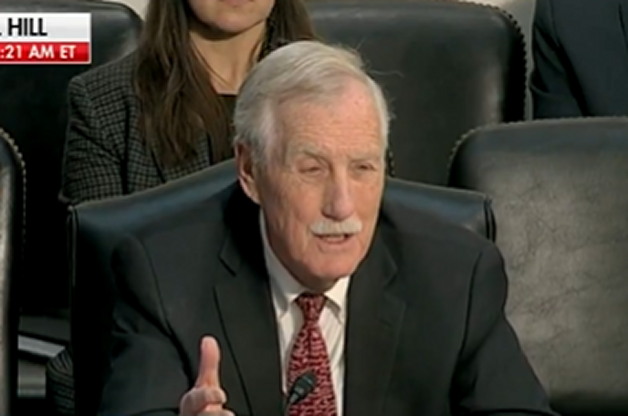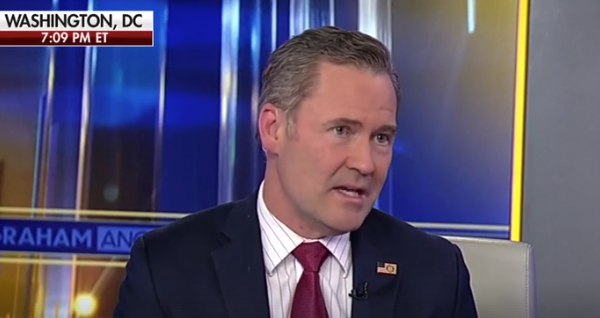Senate Shock: Climate Change Omitted from National Security Report—And It’s Raising Eyebrows
By an Angry Republican Voice of Reason
Today, high-profile testimony unfolded before the Senate Intelligence Committee as DNI Director Tulsi Gabbard and other officials addressed national security threats. In what many conservatives see as a blatant shift in priorities, the U.S. Intelligence Community’s Annual Threat Assessment Report focused solely on “the most extreme and critical direct threats” to the homeland, conveniently sidestepping a hot-button issue that has been a staple of national security discussions for decades: climate change.
Independent Senator Angus King of Maine, though caucusing with Democrats, could not hide his disbelief. As an experienced committee member, King’s reaction—a mix of shock and pointed inquiry—resonates with many on the right. For years, climate change has been presented, sometimes exaggerated by liberal pundits, as the doom-laden enemy infiltrating our future. Yet, the decision to leave it out of this pivotal report hints at political maneuvering. Is our nation now deciding that climate change is less of a threat compared to cartels, terrorists, and adversarial nations? Or is it simply an excuse to divert attention from policies that have so far yielded little in the way of true national security?
The Daily Caller reported the exchange in detail. The blockquote below captures the essence of King’s astonishment:
‘Surprised Me’: Angus King Bewildered As Tulsi Gabbard Explains Why ‘Climate Change’ Omitted In 2025 Threat Report
Independent Sen. Angus King of Maine expressed bewilderment Tuesday over the omission of “climate change” from the U.S. Intelligence Community’s (IC) annual threat assessment report released Monday.
The report highlights threats such as cartels, terrorists and adversarial nations, while making no mention of “climate change.” During a Senate Intelligence Committee hearing on global threats, King said he was “surprised” by the omission and did not appear assuaged by Director of National Intelligence Tulsi Gabbard’s explanation that she ordered the report be focused solely on the “most extreme and critical direct threats” to the homeland.
“One note that surprised me: I’ve been on this committee now for — this is my thirteenth year. Every single one of these reports that we have had has mentioned global climate change as a significant national security threat, except this one,” King said. “Has something happened? Has global climate change been solved? Why, why is that not in this report? And who made the decision that it should not be in the report when it has been in every one of the eleven prior reports?”
Officials have maintained that the report’s focus was to highlight immediate and severe threats, deliberately steering away from long-term challenges. However, from a conservative perspective, this could be seen as an ulterior motive: by eliminating discussions about climate change, they mask the disordered priorities of a government increasingly enamored with left-wing talking points that ignore the long-term robocalls of reality.
Could this be a political tactic to avoid accountability for deteriorating environmental policies that many on the right argue have led to fiscal irresponsibility and cronyism? Or is it an honest effort to concentrate on threats that can be tackled with direct, tactical responses rather than vague future concerns? One thing is clear: the debate is far from over, and the anger is simmering among those who believe that some issues should never be sidelined.
Here’s the video:
But the controversy doesn’t stop at videos. In our age of social media, the voices of the people echo louder than ever. Here’s an important question:
Senator King may choose to revisit this issue as the discussion continues, and many conservative readers are already calling out the exclusion as emblematic of a broader trend within government circles. What does it say about our national security when a familiar threat is so casually dropped from the conversation? If anything, this omission might be a signal that our policy makers are beginning to pick and choose which threats best suit their narrative.
It’s time for all of us to question the consistency of our national security strategies and demand transparency from our elected officials. Share your thoughts in the comment section below. We deserve a candid debate on the issues that truly affect America, without the filters of partisan propaganda.
Source: Steadfast Nation




Leave a Comment